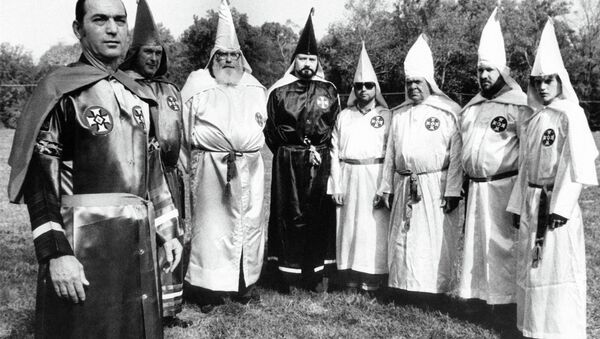Several decades after their racist activism was alive and well, the long shadow of the Ku Klux Klan is still being felt in the U.S. — when it comes to voting patterns in the American South. The lesser-known legacy of the hate group, which failed to destroy the civil rights movement, is its impact on the American political system.
Researchers from Brandeis University, the University of Notre Dame and Yale University have published an intriguing study in the current issue of the American Sociological Review. The research concluded that the KKK played a key role in shifting the party allegiance of voters in the U.S. South in the 1960s from Democrat to Republican. Even though it’s 40 years later, this influence continues to be felt.
As part of the study, county voting records from 10 southern states in which the Klan actively recruited members in the 1960s were analyzed. Then the researchers looked at five presidential elections between 1960 and 2000. Their results showed that southern counties with KKK activity in the 60s had a significant increase in Republican voting compared to other counties where the KKK was not active.
One intriguing result from the study was that conservative racial attitudes among voters in the 1992 presidential election were a strong indicator of a Republican skew — but only in counties where the KKK had a strong presence in the 60s. The residue of hate continued to cling for 30 years after the apotheosis of the Klan.
“The Klan’s efforts to link voting behavior to its social agenda in the 1960s disrupted long-established voting patterns in the South,” said David Cunningham, one of the authors of the study.
“The fact that such efforts continued to predict partisan allegiances decades later demonstrates how the impact of a social movement can endure long after the movement itself has declined, as well as providing a new explanation of political polarization in the U.S.”
Even with an African-American in the Oval Office today, the shadow of the Klan continues to darken the U.S. The researchers say their work can help reveal why political agendas and social movements have such a lasting impact, especially when the original cause of such changes are lost in the mists of time. Historical perspective always helps to make such factors clear.




